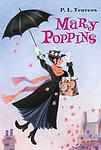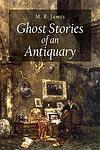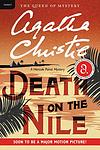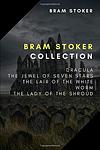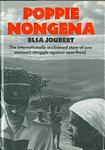The Greatest English, South African "Fiction" Books Since 1900
Click to learn how this list is calculated.
This list represents a comprehensive and trusted collection of the greatest books. Developed through a specialized algorithm, it brings together 300 'best of' book lists to form a definitive guide to the world's most acclaimed books. For those interested in how these books are chosen, additional details can be found on the rankings page.
Genres
Countries
Date Range
Reading Statistics
Click the button below to see how many of these books you've read!
Download
If you're interested in downloading this list as a CSV file for use in a spreadsheet application, you can easily do so by clicking the button below. Please note that to ensure a manageable file size and faster download, the CSV will include details for only the first 500 books.
Download-
1. Disgrace by J M Coetzee
"Disgrace" is a novel that explores the life of a middle-aged professor in South Africa who is dismissed from his position after having an affair with a student. After losing his job, he moves to the countryside to live with his daughter, where they experience a violent attack that significantly alters their lives. The story delves into themes of post-apartheid South Africa, racial tension, sexual exploitation, and the struggle for personal redemption.
-
2. Cry, the Beloved Country by Alan Paton
"Cry, the Beloved Country" is a novel about a black Anglican priest from South Africa's rural Natal region who embarks on a journey to Johannesburg in search of his sister and son. The priest grapples with the racial injustice and social inequality of apartheid-era South Africa, while his son becomes involved in political activism and is wrongfully accused of a crime. The novel explores themes of love, fear, and social justice, while highlighting the destructive effects of apartheid on the human spirit and the South African landscape.
-
3. Waiting for the Barbarians by J M Coetzee
The novel is set in a small frontier town of an unnamed empire, where the magistrate lives a life of civil service and relative peace. His world is disrupted when the Empire declares a state of emergency due to rumors of barbarian uprising. The magistrate becomes a critic of the Empire's brutal and inhumane methods of dealing with the perceived threat, which leads to his arrest and torture. As he tries to understand his role in the vast political machinery, he also grapples with questions of power, justice, and humanity.
-
4. Life & Times of Michael K by J M Coetzee
Set in South Africa during a civil war, the novel follows the journey of Michael K, a simple gardener with a cleft lip. When his mother falls ill, he attempts to take her back to her rural birthplace. After she dies en route, Michael continues the journey alone, struggling to survive in a war-torn landscape, while also being caught up in the bureaucratic red tape of the dystopian society. The story explores themes of freedom, survival, and the human spirit's resilience against adversity.
-
5. Burger's Daughter by Nadine Gordimer
"Burger's Daughter" is a novel centered around Rosa Burger, a white woman in South Africa during the apartheid era. The narrative delves into Rosa's life and struggle to find her identity, while also dealing with the legacy of her parents who were anti-apartheid activists. This story provides a deep look into the political and social climate of South Africa during a time of racial segregation and oppression.
-
6. Mary Poppins by PL Travers
In this beloved classic, a magical and enigmatic nanny named Mary Poppins arrives at the Banks' household to care for their mischievous children. With her peculiar and extraordinary abilities, Mary Poppins takes the children on whimsical adventures, teaching them valuable life lessons along the way. As the family learns to appreciate the wonder and joy in everyday life, Mary Poppins proves that even the most ordinary moments can be extraordinary.
-
7. July's People by Nadine Gordimer
"July's People" is a novel set in a hypothetical future where South Africa's apartheid system has collapsed and the nation is embroiled in a brutal civil war. The story follows a liberal white family who, fleeing the violence, are taken in by their black servant, July, in his rural village. The book explores the power dynamics and complexities of their relationship, as they navigate this new reality where traditional roles are reversed, and grapple with issues of race, class, and privilege.
-
8. A Dry White Season by Andre Brink
Set in apartheid-era South Africa, "A Dry White Season" follows the story of Ben Du Toit, a white schoolteacher who becomes involved in the fight against the system after his gardener's son is brutally beaten by the police. As he delves deeper into his quest for justice, he becomes increasingly isolated from his community and his family, and ultimately pays the highest price for his convictions. The novel is a powerful exploration of the devastating effects of racial injustice and the courage it takes to stand against it.
-
9. Ghost Stories Of An Antiquary by M. R. James
"Ghost Stories of an Antiquary" is a collection of chilling tales that delve into the supernatural and macabre. Written by M. R. James, these stories transport readers to eerie settings, where ancient artifacts, haunted houses, and vengeful spirits lurk. With a masterful blend of suspense and atmospheric descriptions, James weaves narratives that leave readers on the edge of their seats, questioning the boundaries between the real and the supernatural. Each story is a haunting exploration of the human psyche and the terrifying unknown, making this collection a must-read for fans of classic ghost stories.
-
10. Chaka by Thomas Mofolo
This novel explores the life of Chaka, a legendary leader in Southern Africa who turns into a tyrant due to his insatiable thirst for power. The narrative focuses on his rise to power, his strategic military genius which leads to the expansion of the Zulu Empire, and his eventual downfall due to his increasing brutality and madness. The story is a blend of historical fact and folklore, creating a complex portrait of a man driven by ambition and consumed by his own power.
-
11. The Arabian Nightmare by Robert Irwin
"The Arabian Nightmare" is a captivating and surreal journey through the dreams and nightmares of a young scholar named Abdulla. Set in medieval Cairo, the book explores the blurred lines between reality and fantasy as Abdulla becomes entangled in a web of magical creatures, mythical beings, and supernatural occurrences. With richly descriptive prose and a deep understanding of Arabian folklore, the story delves into themes of identity, love, and the power of storytelling, leaving readers questioning the nature of dreams and the boundaries of the human imagination.
-
12. Death On The Nile by Agatha Christie
"Death On The Nile" is a thrilling murder mystery set aboard a luxurious Nile river cruise. When a young and beautiful heiress is found dead, renowned detective Hercule Poirot must navigate a web of deceit, jealousy, and hidden motives to uncover the truth behind her untimely demise. As the suspects become increasingly desperate to protect their secrets, Poirot races against time to solve the puzzle before the killer strikes again.
-
13. Dusklands by J M Coetzee
"Dusklands" is a novel divided into two distinct parts, each examining the theme of imperialism. The first part follows a psychologically unstable American government researcher during the Vietnam War, who is tasked with developing propaganda to justify the conflict. The second part is a historical narrative set in the 18th century, exploring the violent colonization of South Africa by the Dutch. The stories parallel each other, highlighting the destructive nature of imperialism and the psychological effects it has on individuals.
-
14. In the Heart of the Country by J M Coetzee
Set in South Africa, this novel tells the story of a woman living on a remote farm who is isolated not only geographically but also emotionally and psychologically. After her father marries his young mistress, the protagonist's life spirals into madness and tragedy. The narrative explores themes of loneliness, power dynamics, and the harsh realities of life in apartheid-era South Africa, all presented through the protagonist's fragmented and unreliable perspective.
-
15. The Sheep Look Up by John Brunner
"The Sheep Look Up" is a dystopian science fiction novel that presents a grim and polluted future where environmental degradation and overpopulation have reached catastrophic levels. The story follows various characters as they navigate a world plagued by toxic pollution, food shortages, and rampant disease outbreaks. With a sharp critique of corporate greed and government negligence, the novel explores the consequences of humanity's disregard for the environment and the urgent need for change.
-
16. Ancestral Voices by Etienne van Heerden
"Ancestral Voices" is a haunting novel set in South Africa during the apartheid era. The story follows a young boy who grows up in a small rural town, navigating a complex web of familial relationships and secrets. As he matures, he becomes increasingly aware of the racial and social injustices that surround him. The book explores themes of identity, heritage, and the harsh realities of life under apartheid, all weaved together with a deep sense of the mystical and the supernatural.
-
17. The Conservationist by Nadine Gordimer
The book is a character-driven novel set in South Africa during the apartheid era. The protagonist is a wealthy, white industrialist who buys a farm with the intention of using it as a weekend retreat. However, the farm proves to be unprofitable and difficult to manage, and the protagonist's life becomes intertwined with the lives of the black people who live and work on the land. The narrative explores themes of ownership, identity, and the struggle for meaning in a racially divided society.
-
18. Ingqumbo Yeminyanya by Archibald Campbell Jordan
"Ingqumbo Yeminyanya" is a powerful and thought-provoking novel set in South Africa during the early 20th century. It explores the complexities of race, identity, and the struggle for freedom through the lives of its diverse characters. With rich storytelling and vivid descriptions, the book delves into the harsh realities of apartheid and the profound impact it has on individuals and communities. Through its compelling narrative, the novel challenges readers to confront the deep-rooted prejudices and injustices that plagued the nation, while also highlighting the strength and resilience of the human spirit in the face of adversity.
-
19. The Blood Knot by Athol Fugard
"The Blood Knot" is a powerful play that explores the complex relationship between two half-brothers, Morris and Zachariah, who live together in a small shack in apartheid-era South Africa. Morris, who is light-skinned, dreams of escaping their impoverished life, while Zachariah, who is dark-skinned, is content with their routine. As tensions rise and their differences become more apparent, the brothers navigate themes of identity, race, and the limitations imposed by society, ultimately leading to a shocking and heartbreaking climax.
-
20. Inkinnsela Yase Mgungundlovu by Sibusiso Nyembezi
"Inkinnsela Yase Mgungundlovu" is a captivating novel that delves into the lives of the people living in the village of Mgungundlovu. Set during the time of the Zulu kingdom, the story follows the struggles and triumphs of various characters as they navigate through love, friendship, and societal expectations. With rich cultural descriptions and vivid storytelling, the book offers a glimpse into the complexities of life in rural South Africa, highlighting themes of tradition, identity, and the pursuit of dreams.
-
21. The Jewel Of Seven Stars by Bram Stoker
"The Jewel of Seven Stars" is a gripping gothic horror novel that follows the story of a young archaeologist who becomes entangled in a mysterious and ancient curse. When an Egyptian mummy is brought to London, strange occurrences begin to unfold, leading the protagonist on a perilous journey to uncover the secrets of an ancient queen and her quest for immortality. As the suspense builds, the protagonist must confront supernatural forces and make a desperate attempt to break the curse before it consumes them all.
-
22. Die Swerdjare Van Poppie Nongena by Elsa Joubert
"Die Swerdjare Van Poppie Nongena" is a powerful and poignant novel that tells the story of Poppie, a black South African woman, during the apartheid era. Set in the 1960s, Poppie faces immense challenges as she navigates the oppressive system that separates her from her family and forces her to endure constant discrimination and hardship. Through Poppie's experiences, the book explores themes of resilience, love, and the human spirit's ability to triumph in the face of adversity.
-
23. The Poet And The Lunatics by G. K. Chesterton
"The Poet And The Lunatics" by G. K. Chesterton is a whimsical and satirical novel that follows the adventures of Gabriel Gale, a poet who finds himself entangled in a series of mysterious events. As he navigates through a world populated by eccentric characters and bizarre situations, Gabriel becomes embroiled in a plot involving secret societies, mistaken identities, and the blurred lines between sanity and madness. With his signature wit and clever wordplay, Chesterton explores the nature of art, reality, and the human condition in this delightful and thought-provoking tale.
-
24. High Citadel by Desmond Bagley
In "High Citadel" by Desmond Bagley, a group of strangers find themselves stranded in the Andes mountains after their plane crashes. As they struggle to survive in the harsh conditions, they discover that they are not alone. With danger lurking in every corner, they must work together to overcome their differences and escape the treacherous mountain range.
-
25. The Steam Pig by James McClure
In this gripping crime novel, a tenacious detective navigates the complex social and racial landscape of 1970s South Africa to solve a perplexing murder case. The story begins when a body is discovered inside a clay pig sculpture, leading the detective on a trail through the seedy underbelly of the city. As he delves deeper into the investigation, he encounters a diverse cast of characters and uncovers a web of deceit and corruption. The detective's sharp instincts and unwavering commitment to justice drive him to unravel the mystery, despite the challenges posed by the apartheid-era setting.
Reading Statistics
Click the button below to see how many of these books you've read!
Download
If you're interested in downloading this list as a CSV file for use in a spreadsheet application, you can easily do so by clicking the button below. Please note that to ensure a manageable file size and faster download, the CSV will include details for only the first 500 books.
Download




